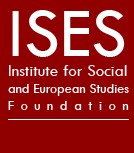written by Ákos Jakobi
The impacts underpinning the knowledge-based development of the Szigetköz area, based on the innovative regional development approach methodology entitled „Creative City – Sustainable Regions” (Craft)
The Craft approach serves as an integrated framework by combining soft and hard factors, in which individual and community (corporate, urban, academic, civil society) interests, often reflecting a one-sided sectoral perspective, are brought together and taken into account simultaneously, through a complex and in-depth understanding of long- and medium-term development objectives and the creation of social, economic and ecological sustainability. In recent years, it has been recognized that waves of global crises have rendered traditional investment and rural development strategies obsolete, while at the same time they have revalued creativity, knowledge production, socio-economic cohesion and social innovation. It is therefore worth focusing on and measuring elements of creativity, heritage management, innovation capacity, new knowledge creation, knowledge transfer, trust or collaborative skills. This project aims to create a multidisciplinary integration of these elements through theoretical and empirical surveying of the Žitný ostrov (Csallóköz) region, and by enhancing cross-border cooperation between Slovakia and Hungary.
Based on preliminary experiences gained in the Szigetköz area, this project aims at extending the Craft-based development idea to a cross-border development project, by taking into account the regionally overarching issues related to cultural heritage, local values, knowledge, as well as socio-economic and ecological sustainability. Until now the Žitný ostrov (Csallóköz) region has not been described through the lens of the complex Craft approach, while additionally it could serve as a test region for identifying local specificities and regional similarities compared to its twin area. Furthermore, the project aims to formulate the basics for cultural development based cross-border knowledge transfer, by enhancing the elaboration of networks among local participants, knowledge centers and municipalities.
